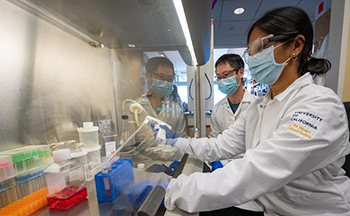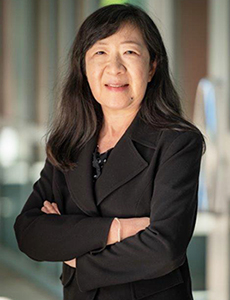
Repairing the permanent damage associated with a heart attack or long-term heart disease has been a challenge that scientists have been trying to tackle for a long time. Heart failure affects approximately 5.7 million people in the U.S and it is estimated that this number will increase to 9 million by the year 2030. At a biological level, the biggest challenge to overcome is cell death and thickening of muscles around the heart.
Recently, using stem cells to treat heart disease has shown some promise. However, little progress has been made in this area because the inflammation associated with heart disease decreases the chances of stem cell survival. Fortunately, Dr. Nipavan Chiamvimonvat and her team of researchers at UC Davis have found an enzyme inhibitor that may help stem cells repair damaged heart tissue.

Image Credit: UC Davis
The enzyme the team is looking at, known as soluble epoxide hydrolase (or sEH for short), is a known factor in joint and lung disease and is associated with inflammation. The inhibitor Dr. Chiamvimonvat and her team are studying closely is called TPPU and it is meant to block sEH.
In their study, the UC Davis team used human-induced pluripotent stem cells (hiPSCs), a kind of stem cell made by reprogramming skin or blood cells that then has the ability to form all cell types. In this case, the hiPSCs were turned into heart muscle cells.
To evaluate the effectiveness of TPPU, the team then induced heart attacks in six groups of mice. A group of these mice was treated with a combination of TPPU and the newly created heart muscle cells. The team found that the mice treated with this combination approach had the best outcomes in terms of increased engraftment and survival of transplanted stem cells. Additionally, this group also had less heart muscle thickening and improved heart function.
The next step for Dr. Chiamvimonvat and her team is to conduct more animal testing in order to obtain the data necessary to test this therapy in clinical trials.
In a press release, Dr. Chiamvimonvat discusses the importance of research and its impact on patients.
““It is my dream as a clinician and scientist to take the problems I see in the clinic to the lab for solutions that benefit our patients.”
The full study was published in Stem Cells Translational Medicine.